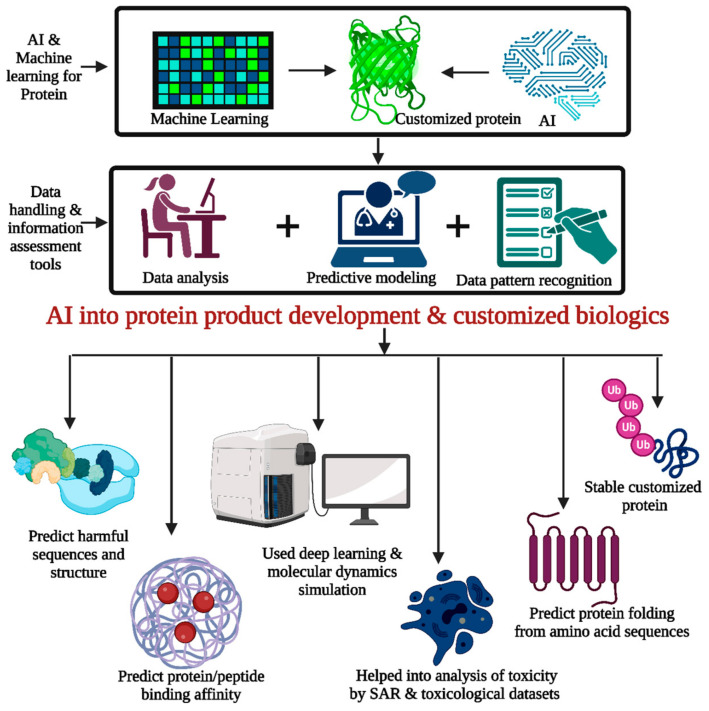Figure 6.
AI can contribute to protein development and customized biologics by using data analysis, predictive modeling, and pattern recognition tools for better improvisation in the protein development process and customized proteins. Knowledge of altered biological pathways and finding disease targets are required for the same. The prediction of protein folding from amino acid sequences and the use of deep learning and molecular dynamic simulation for better understanding can be performed by AI. The prediction of protein/peptide binding affinity and toxicity studies can be performed effectively by AI with the help of SAR and toxicological datasets.

